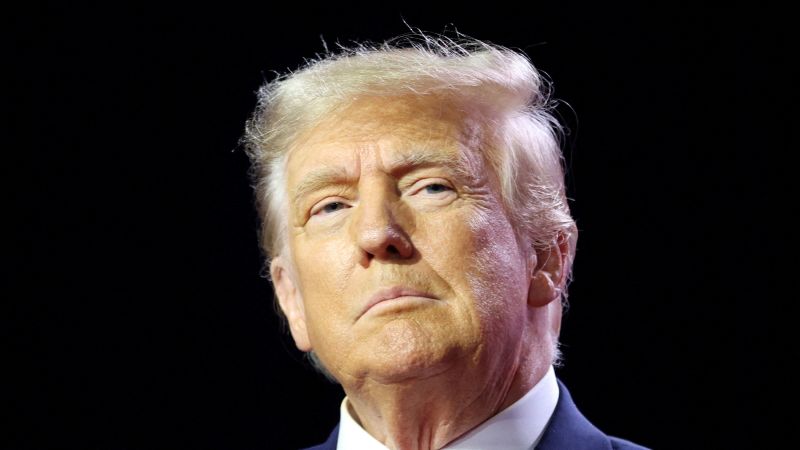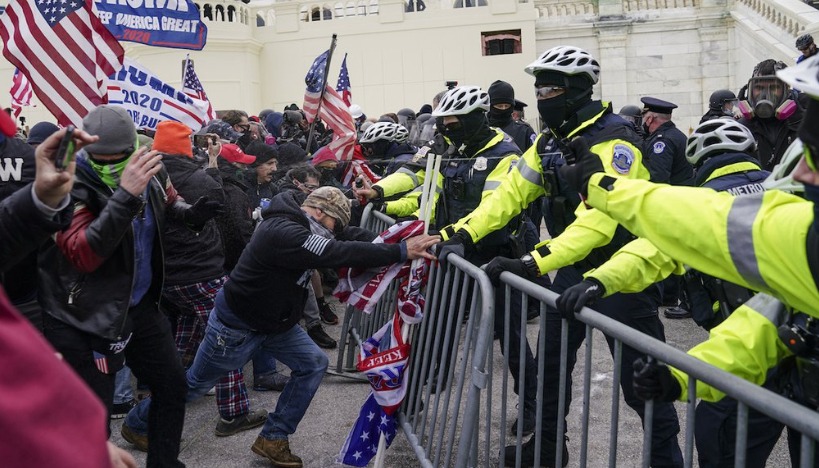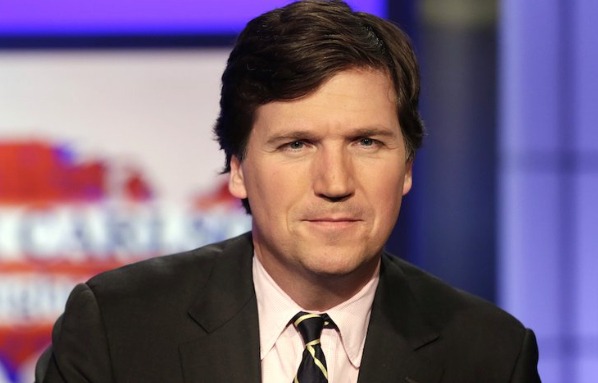Former President Donald Trump Pleads Not Guilty to Criminal Charges Related to Election Overturn
Former President Donald Trump has entered a plea of not guilty to four criminal charges connected to his efforts to overturn the 2020 presidential election. This development comes as Trump appeared in the same Washington, DC courthouse that witnessed the violence at the US Capitol on January 6, 2021. Over 1,000 Trump supporters who participated in the insurrection have also appeared in this courthouse.
Release on Minimal Conditions
Despite the charges, the former president will be released on very minimal conditions. One of these conditions is that he is not allowed to communicate with any known witnesses in the case, unless through an attorney.
Next Hearing Set for August 28
The next hearing in Trump’s case is scheduled for August 28, just five days after the first Republican presidential primary debate. This highlights the extraordinary circumstances where the front-runner for the 2024 nomination has an unprecedented federal court schedule.
Trump’s Response
Addressing reporters before boarding his plane to return to his golf club in Bedminster, New Jersey, Trump called the indictment “a persecution of a political opponent” and stated that it was never supposed to happen in America.
Historic Scene
Thursday’s court appearance adds to the historic nature of Trump’s legal battles. He has already made court appearances in New York for charges related to his 2016 campaign hush money scheme and in Florida for mishandling classified documents. However, this hearing holds particular significance as it takes place in a building that has been at the center of accountability for the January 6 attack on democracy.
Weight on Judge Beryl Howell
Judge Beryl Howell, who recently stepped down as the DC district court’s chief judge, has been affected by the ongoing proceedings. The courthouse serves as a constant reminder of the assault on Congress and the factors that led to it.
Not a Peaceful Protest
During a previous sentencing of a rioter, Judge Howell emphasized that the Capitol attack was not a peaceful protest. She described it as “hundreds of people” who came to Washington, DC with the intention to disrupt the peaceful transfer of power.
Watch the Video
For a deeper understanding of Trump’s indictment and the legal arguments surrounding it, watch the video featuring former federal prosecutor Jessica Roth. She breaks down the case and provides valuable insights.
Stay Informed
Stay updated on the latest developments in Trump’s legal battles and their impact on American democracy.Breaking Down Trump’s Indictment: A Former Federal Prosecutor’s Analysis
Former President Donald Trump is facing serious charges, including conspiring to defraud the United States and obstructing an official proceeding. These charges are not to be taken lightly, as they have already been successfully brought against Capitol rioters. But that’s not all – prosecutors are also relying on a Reconstruction-era civil rights law to accuse Trump of conspiring to deprive individuals of their right to vote.
The indictment paints a picture of a determined Trump, who was unwilling to accept his electoral loss in 2020. Alongside six unindicted co-conspirators, he allegedly orchestrated a plot to overturn the election results, culminating in the events of January 6. Prosecutors argue that Trump exploited the chaos and violence of that day to further his efforts to overturn the election.
But it doesn’t stop there. The indictment also alleges that Trump and his co-conspirators deceived individuals from seven targeted states into creating and submitting false certificates asserting they were legitimate electors. This level of manipulation is shocking and raises serious questions about the integrity of our democratic process.
At a recent hearing, prosecutors pushed for a speedy trial, emphasizing the need for normal order and a fair process. The case will be presided over by federal Judge Tanya Chutkan, who intends to set a precedent for swift justice.
The implications of this indictment are far-reaching and have the potential to reshape our understanding of presidential power and accountability. It is crucial that we pay attention to the details and follow this case closely. The future of our democracy may depend on it.Former President Trump’s trial date for his involvement in the Capitol riot has been delayed due to the massive amount of discovery that needs to be reviewed. The defense team argues that they need time to properly address the information before setting a trial date. While Trump’s role in the riot has been a focal point in the proceedings against the rioters, the argument that he incited their actions has had limited success. However, video evidence of his speech on January 6 has been played at numerous hearings. The victims of the riot have testified to the serious physical and mental injuries they suffered as a result of the assault. The trial continues to draw attention as Capitol and US Metropolitan police officers appear as witnesses, sharing their experiences and the lasting trauma they have endured.Compelling Title: Judges Speak Out on Trump’s Role in Capitol Riot and Tough Sentences for Rioters
Subheading 1: Judges Condemn Trump’s Role in Capitol Riot
US District Judge Reggie Walton didn’t hold back when expressing his views on the former president’s involvement in the Capitol riot. He stated that Trump’s disregard for democracy and obsession with power is a threat to our democracy itself.
Subheading 2: Rioter Testifies to Following Trump’s Directions
During the trial of Dustin Thompson, a Capitol rioter, he testified that he felt obligated to enter the Capitol based on Trump’s instructions. Thompson’s belief that he was following the President’s orders raises questions about Trump’s role in inciting the violence.
Subheading 3: Judge Finds Rioter Guilty, Citing Trump’s Charges
Alan Hostetter, a rioter, was recently found guilty of obstruction of an official proceeding. The judge, Royce Lamberth, highlighted Hostetter’s minor leadership role and his use of a bullhorn to encourage the crowd. This ruling sheds light on the charges that Trump himself now faces.
Subheading 4: Judges Emphasize Unlawfulness of Capitol Violence
Judge Lamberth further emphasized that no reasonable citizen, especially someone with law enforcement experience, could believe that using mob violence to impede Congress was lawful. This statement underscores the severity of the actions taken by the Capitol rioters.
Subheading 5: Judge Chutkan’s Approach and Belief in Deterrence
Judge Chutkan, who will preside over the Trump case, has consistently emphasized the importance of deterring any conduct that undermines future elections. Her stance may pose a challenge to Trump’s attempts to delay his trial until after the 2024 elections.
Subheading 6: Tough Sentences for Capitol Rioters
Judge Chutkan’s sentences for January 6 rioters have been notably tough compared to other district court rulings. Data from the Justice Department reveals that every one of the three dozen rioters she has sentenced received jail time, even when prosecutors didn’t request it. This sends a strong message about the consequences of their actions.
Subheading 7: Chutkan’s Words Reflect the Nation’s Attention
Judge Chutkan acknowledged the significance of the Capitol riot and its unprecedented nature. She stated that the country is watching closely to see the consequences for an event that has never occurred before in our nation’s history.
Subheading 8: Defendant’s Motive Reveals Loyalty to Trump
During a sentencing, Judge Chutkan made a striking remark about a defendant’s motive for participating in the Capitol riot. She stated that the defendant didn’t act out of love for the country but solely for one man, referring to Trump. This remark highlights the influence Trump had on his supporters.
Conclusion: Judges’ Opinions and Tough Sentences Shed Light on Trump’s Role
The judges’ statements and sentencing decisions provide valuable insights into Trump’s role in the Capitol riot and the consequences faced by the rioters. Their words and actions demonstrate the seriousness of the events that unfolded on January 6, 2021.
Unveiling Donald Trump’s Not Guilty Plea for January 6 Charges – What Really Happened?
The events that unfolded on January 6, 2021, at the United States Capitol were unprecedented and shook the very foundations of American democracy. As the world watched in disbelief, a mob of supporters of then-President Donald Trump stormed the Capitol building, resulting in chaos, violence, and the tragic loss of lives. In the aftermath of this shocking incident, questions arose about the role played by Donald Trump in inciting the crowd and whether he should be held accountable for the events that transpired.
On February 9, 2021, the second impeachment trial of Donald Trump commenced in the Senate, charging him with “incitement of insurrection.” The trial aimed to determine whether the former president’s actions and rhetoric leading up to the Capitol attack warranted his removal from office and potential disqualification from holding future public office. However, on the first day of the trial, Trump’s defense team surprised many by arguing that the entire impeachment process was unconstitutional since he was no longer in office.
The defense’s argument centered around the interpretation of the Constitution’s impeachment clause, which states that “The President, Vice President, and all civil Officers of the United States shall be removed from Office on Impeachment for, and Conviction of, Treason, Bribery, or other high Crimes and Misdemeanors.” Trump’s lawyers contended that since he had already left office, the Senate lacked jurisdiction to try him. This argument raised a significant constitutional question that the Senate had to address before proceeding with the trial.
Ultimately, the Senate voted to proceed with the trial, with a majority of senators rejecting the defense’s argument. However, this decision did not settle the constitutional debate surrounding the impeachment of a former president. It highlighted the need for further clarification on the matter to prevent future ambiguity and ensure a clear process for holding former presidents accountable for their actions while in office.
On the second day of the trial, the House impeachment managers presented a compelling case, using a combination of video footage, witness testimonies, and Trump’s own words to argue that he had indeed incited the mob that attacked the Capitol. They highlighted his repeated false claims of election fraud, his encouragement of his supporters to “fight like hell,” and his failure to promptly condemn the violence as evidence of his culpability.
However, on February 13, 2021, the Senate voted to acquit Donald Trump, falling short of the two-thirds majority required for conviction. While seven Republican senators joined their Democratic colleagues in voting to convict, the final tally of 57-43 fell well below the necessary threshold. Trump became the first president in U.S. history to be impeached twice but acquitted both times.
The outcome of the trial left many Americans divided and raised questions about the effectiveness of the impeachment process as a tool for holding presidents accountable. Critics argued that the Senate’s decision undermined the principle that no one, not even a president, is above the law. They contended that Trump’s acquittal sent a dangerous message, potentially emboldening future leaders to engage in similar behavior without fear of consequences.
Supporters of the former president, on the other hand, saw the acquittal as a vindication of Trump’s claims of innocence. They argued that the impeachment trial was politically motivated and an attempt by Democrats to further divide the nation. They believed that Trump’s fiery rhetoric was protected by the First Amendment and that he bore no direct responsibility for the actions of the mob.
In the aftermath of the trial, the debate over Donald Trump’s guilt or innocence continues to rage on. While the legal proceedings have concluded, the impact of the events of January 6, 2021, and the subsequent impeachment trial will undoubtedly shape the future of American politics. The nation now faces the challenge of healing its deep divisions and finding a way to ensure accountability and justice while preserving the principles of democracy that it holds dear.








